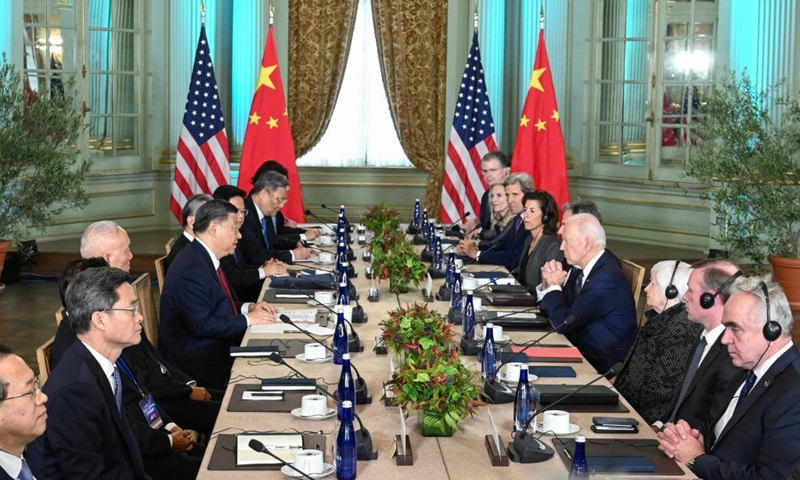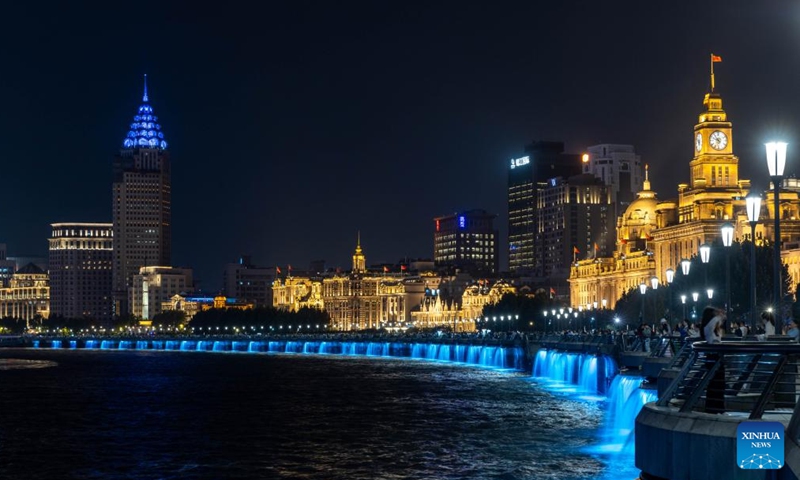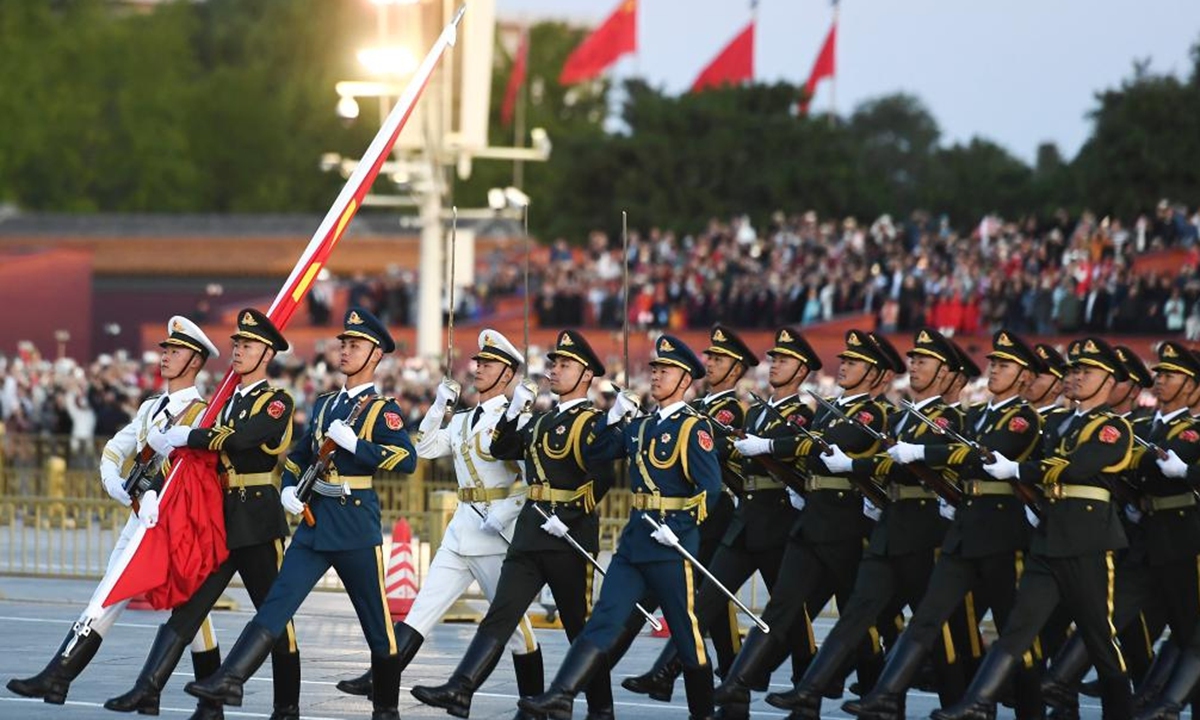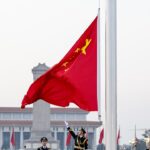An eventful 2023 is drawing to an end. The Palestine-Israel conflict has again drawn the US into another Middle East crisis, whilst chaotic US domestic politics exacerbated by the country’s domestic polarization, continues to create uncertainty and cast a dark shadow across the world. The protracted Russia-Ukraine conflict unnerves Europe, and it’s finding it more difficult to grapple with the supply of weapons to Ukraine. In addition, the continent is battered with financial and industrial setbacks, as well as rising far-right forces.
Amid such a turbulent background, China has as always been trying its best to play an impartial and active role in mediating conflicts, as well as contribute its wisdom to promote peace around the globe. Moreover, it has also managed to inject much-needed positive energy and stability to the world’s sluggish economy.
Chinese observers said China has entered a key juncture of development due to profound global changes. As the country’s rapid development in the past decades is partly thanks to a stable and peaceful surrounding environment, and as such environment is in jeopardy, the country must create by itself favorable conditions for its new phase of high-quality development, said experts.
Record-breaking attendees participated in this year’s Beijing Xiangshan Forum held in October. It is a major platform currently able to receive attendees from Russia, Ukraine, Israel and Iran, especially after the outbreaks of the Ukraine crisis and the latest Palestine-Israel conflict.
Senior Colonel Zhao Xiaozhuo, deputy director of the Beijing Xiangshan Forum Secretariat, said that all participants of the forum, no matter which country they came from, shared similar expectations toward China, that is for Beijing to get more involved in mediating and solving global issues.
Zhao told the Global Times it is not only because of China’s rising strength, but also because China has always been a peacekeeper and peace builder internationally. “Just look around, crisis and conflicts stretched from Europe to the Middle East, to Africa. But peace is thriving in the Asia-Pacific region because China has played a significant role in keeping such peace,” said Zhao. He noted that it is not because the region is trouble-free; it is because China, as a regional great power, advocates peace.
In retrospect, China’s efforts to promote peace have come to fruition in 2023, a year mired in conflicts and confrontation. In March, after years of hostility, Saudi Arabia and Iran agreed to restore diplomatic ties after talks facilitated by China, a significant development for the two nations and a boon to the security and stability of the Middle East.
In October, the third Belt and Road Forum (BRF) for International Cooperation was successfully held in Beijing. Representatives from more than 110 countries attended the forum and a total of 458 outcomes were achieved, far more than the second BRF.
In San Francisco in November, Chinese and US leaders concluded a significant China-US summit, which experts said set the direction for a healthy, stable, and sustainable development of China-US relations, which is also a sign of relief for the world.

Chinese President Xi Jinping meets with U.S. President Joe Biden at Filoli Estate in the U.S. state of California, Nov. 15, 2023.(Photo: Xinhua)
Among the various challenges and problems we’re facing right now, the China-US relationship is the most significant one. The recent meeting between the two heads of state in San Francisco has provided confidence in the strategic stability of bilateral relations, Chinese People’s Liberation Army (PLA) Navy rear admiral Yang Yi told the Global Times. However, he noted that this confidence alone cannot solve the fundamental contradictions between the two countries.
After the meeting between heads of state from China and the US, Washington did not stop its attempt to thwart China’s development. Last month, the militaries of the Philippines and the US launched joint patrols in waters near the island of Taiwan, Reuters reported, noting this could be a move to “fan further tension with China.”
The US crackdown on China in all fronts including in trade, tech and other fields and stirring up trouble near China’s doorstep has made Chinese observers see China-US rivalry as the main contradiction influencing the current situation. Jin Canrong, associate dean of the School of International Studies at the Renmin University of China, told the Global Times that in the face of pressure from the US, as long as China maintains domestic development and stability, it can handle the situation well.
Zhao said that in the past 40 years, China’s rapid development has largely attributed to a peaceful and stable environment. However, currently such environment has been spoiled, and China should build and is capable of building a peaceful environment for itself, for another phase of rapid development.
Engine of global economic growth
In 2023, China’s economy has also rebounded and is progressing toward high-quality development. In the first three quarters of 2023, China’s GDP grew by 5.2 percent to 91.3 trillion yuan ($12.5 trillion), maintaining a leading position among major global economies in terms of growth rate.
Experts said China’s overall economic recovery this year has laid a solid foundation for achieving the annual economic growth target of around 5 percent. With stable policies and strong growth momentum, China has become a source of confidence in driving sustainable global economic recovery.
Cao Heping, an economist at Peking University, said that if China’s economy grows by around 5 percent in 2023, its GDP will reach 127 trillion yuan, accounting for approximately 18 percent of the global economy.

This photo taken on Nov. 3, 2023 shows a night view of Shanghai, east China. The 6th China International Import Expo (CIIE) is scheduled to be held in Shanghai from Nov. 5 to 10. The expo showcases China’s new development paradigm, a platform for high-standard opening up, and a public good for the whole world. (Photo: Xinhua)
“China’s contribution to the world economy is significant. In contrast to the excessive issuance of currency by the US, China’s stable policies have led to affordable goods and made tangible contributions to the world,” Cao told the Global Times.
Recently, several international organizations and financial institutions have raised their forecasts for China’s economy. The Organization for Economic Co-operation and Development (OECD) has raised its growth forecast for China this year to 5.2 percent, while the International Monetary Fund (IMF) has raised it to 5.4 percent.
The IMF predicted that China’s contribution to global economic growth this year will exceed 30 percent, solidifying its role as an important engine for stable global economic growth.
“Our research shows that faster growth in China also has positive spillovers on the rest of the world. For example, a 1 percentage point increase in growth in China would, on average, increase the level of output in other economies by 0.3 percent over the medium term. This illustrates how strong growth in China is good for China while also providing a welcome lift to global demand,” Steven Alan Barnett, senior IMF resident representative in China, told the Global Times in an exclusive interview early this month.
China will see more favorable conditions than unfavorable ones for economic development next year and China’s economic development still has enormous opportunities despite sluggish global growth and insufficient domestic demand, according to an official of the Office of the Central Committee for Financial and Economic Affairs.
As social expectation gradually improves, high savings will help boost consumption and investment. A series of government policies, including the issuance of 1 trillion yuan in additional government bonds, reductions in interest rates and reserve requirement ratios, and tax and fee cuts, will continue to take effect next year, the official said.













